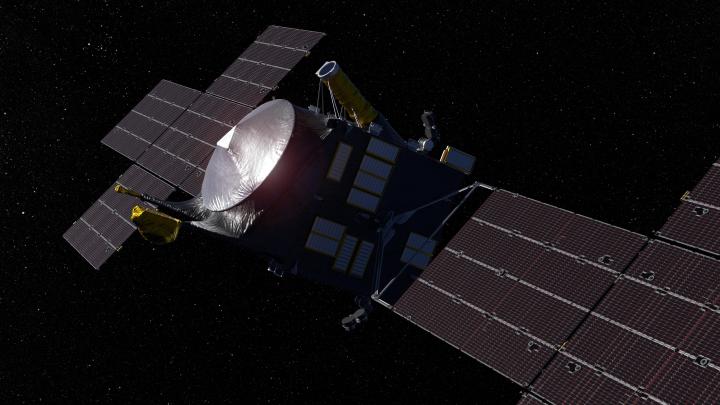NASA’s Psyche spacecraft, set to visit a mysterious metal asteroid, has been given a new launch date following a delay to its launch which was originally set for August 2022. The spacecraft missed its launch date due to technical problems with its software which were announced in June, but now it will launch in October 2023 instead.
By launching at this time, the spacecraft can follow a flight profile similar to the previously planned one. The spacecraft will perform a flyby of Mars for a gravity assist in 2026 and is scheduled to arrive at the asteroid Psyche in August 2029. The spacecraft will investigate the asteroid, also called Psyche, which is thought to be made almost entirely of metal. Studying the asteroid could help researchers learn about how planets formed, because the asteroid may have been in the early stages of becoming a planetary core.

Following the missed launch date of the Psyche mission, NASA and its Jet Propulsion Laboratory (JPL) conducted its own internal review into whether the mission could launch in 2023, and a further independent review looked into what technical issues occurred and how the mission was overseen. This independent review has not yet produced its final report, but it is expected soon and will be shared publicly.
“I appreciate the hard work of the independent review board and the JPL-led team toward mission success,” said Thomas Zurbuchen, associate administrator of NASA’s Science Mission Directorate, in a statement. “The lessons learned from Psyche will be implemented across our entire mission portfolio. I am excited about the science insights Psyche will provide during its lifetime and its promise to contribute to our understanding of our own planet’s core.”
The team is now working to complete testing of the Psyche spacecraft so it can be ready for launch next year.
“I’m extremely proud of the Psyche team,” said JPL Director Laurie Leshin. “During this review, they have demonstrated significant progress already made toward the future launch date. I am confident in the plan moving forward and excited by the unique and important science this mission will return.”
Editors' Recommendations
- Hubble discovers over 1,000 new asteroids thanks to photobombing
- NASA needs a new approach for its challenging Mars Sample Return mission
- These 3 companies are developing NASA’s new moon vehicle
- NASA astronauts will try to grow plants on the moon
- Here’s the new science that’s launching to the ISS today




